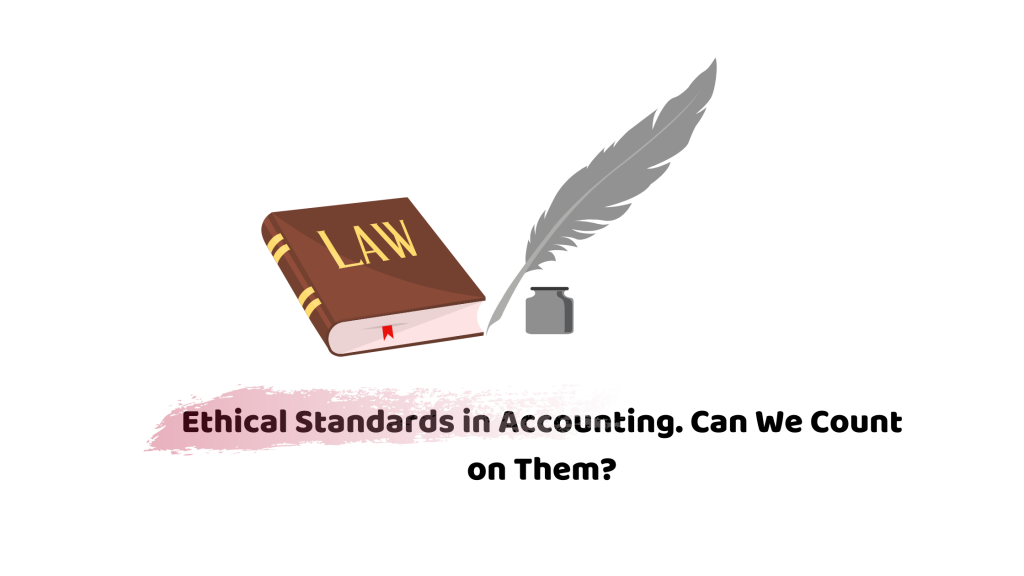When talking about Accounting Ethical Standards one should not forget to include respectability, objectivity, professional competence and due consideration, privacy and expert conduct – set up the norm of conduct expected of a professional accountant and it mirrors the calling’s acknowledgement of its public interest duty.
Accounting ethics is a significant subject on the grounds that, as accountants, we are the key staff who access the monetary data of people and substances. Such power additionally includes the potential and opportunities for maltreatment of data or control of numbers to improve organization discernments or implement income. Morals are likewise totally needed over the span of a review. Without meeting the prerequisites of reviewing and bookkeeping ethics, a review should in a split second be delayed.
What exactly are the Accounting Ethical Standards? Here are a few to name:
ACCA code of ethics and conduct
Accountants to maintain high ethical standards as ACCA (Association of Chartered Certified Accountants) has distributed its own moral rules under The ACCA Code of Ethics and Conduct which is authoritative on the entirety of its individuals and understudies just as on each accomplice and director in an ACCA practice. In view of the International Ethics Standards Board for Accountants Code, these standards rotate around proficient morals, in particular:
- Proficient competence and due consideration – to keep up professional knowledge and expertise at a level needed to guarantee that a customer or manager gets skillful expert help dependent on current enhancements in practice, enactment and procedures, and act steadily and as per pertinent specialized and expert guidelines.
- Privacy – to regard the secrecy of data gained because of expert and business connections and, in this manner, not uncover any such data to outsiders without legitimate and explicit authority, except if there’s a lawful or expert right or obligation to unveil, nor utilize the data for the individual favorable position of the expert accountant or outsiders.
- Professional conduct – to follow pertinent laws and guidelines and dodge any activity that ruins the calling.
Sitting close by these expert morals are close to home morals – an ethical code backed by:
- Integrity – being clear, upfront and genuine in all professional and business connections.
- Objectivity – not permitting predisposition, irreconcilable circumstances or unjustifiable impact of others to abrogate professional or business decisions.
In any case, morals go farther than these five standards? They are not rules however are Ethical Accounting Standards, and in this way to explore them, it is important to apply one’s own moral translation. This includes an appraisal of what is needed to cling to these standards and make the best decision.
The fundamental principles of expert morals for accountants and gives a calculated system, which proficient accountants ought to apply to:
- distinguish threats to compliance with the key standards;
- assess the significance of the threats recognized; and
- apply shields, when important, to abolish the threats or lessen them to a satisfactory level.
Corporate governance standards
The Financial Reporting Council in the UK sets the corporate administration, stewardship codes and UK standards for accounting and actuarial work. The code has grown broadly since the primary UK Corporate Governance Code was published in 1992. It presently reaches out to the accompanying parts of authority, to some degree required by the monetary emergencies and prominent botch/wrongdoing models:
- board initiative and the company’s purpose
- division of obligations
- organization, progression and assessment
- review, risk and inward control, and
- compensation.
In addition to the fact that accountants have a task to carry out inside the activity and stewardship of their own practices, however, they are at the front line of helping other people meet their own corporate administration guidelines. Accurate accounting is a significant foundation in aiding all organizations to fulfil severe corporate guidelines, implicit rules and guidelines.
Ethical dilemma in accounting
Nothing is always smooth and times you do encounter bumps along the way so in case you face an ethical dilemma in accounting here are steps in solving an ethical dilemma in accounting:
- Collect facts
- Characterize the ethical issues
- Distinguish the influenced parties (stakeholders)
- Identify the outcomes
- Distinguish the commitments (standards, rights, equity)
- Think about your character and integrity
- Contemplate likely activities
- Settle on the legitimate moral activity and be set up to manage the counter-arguments.
The maintenance of Accounting Ethical Standards paramount’s to trust.





















































